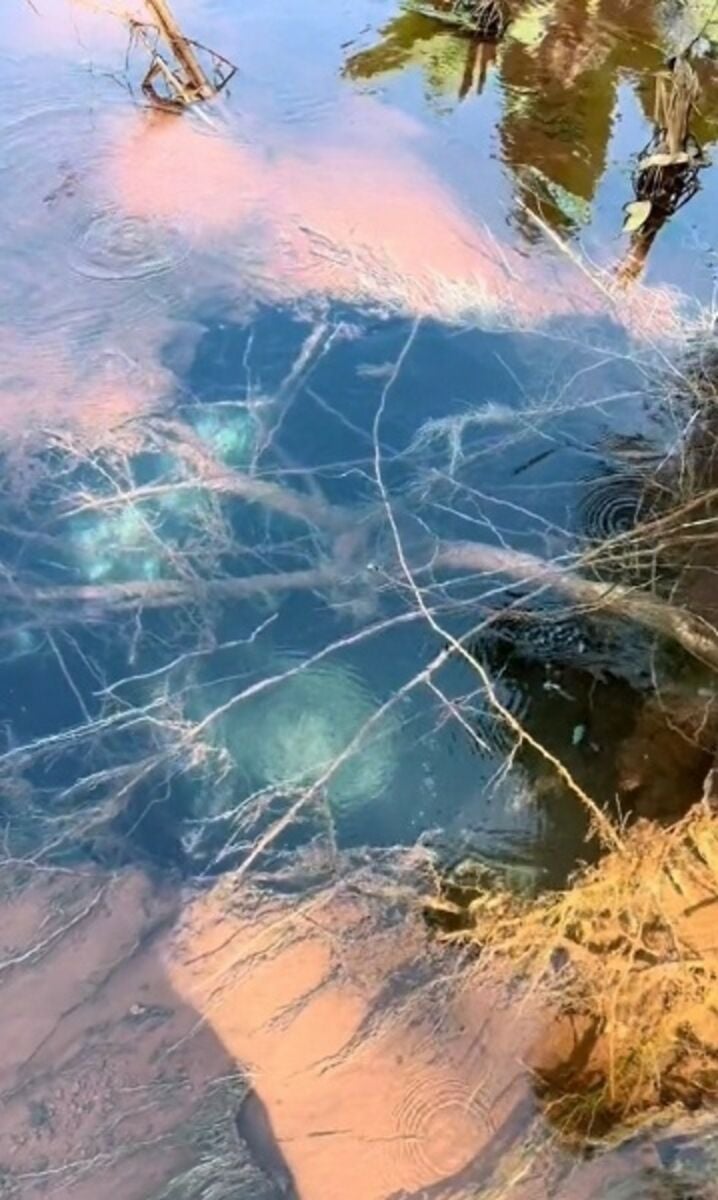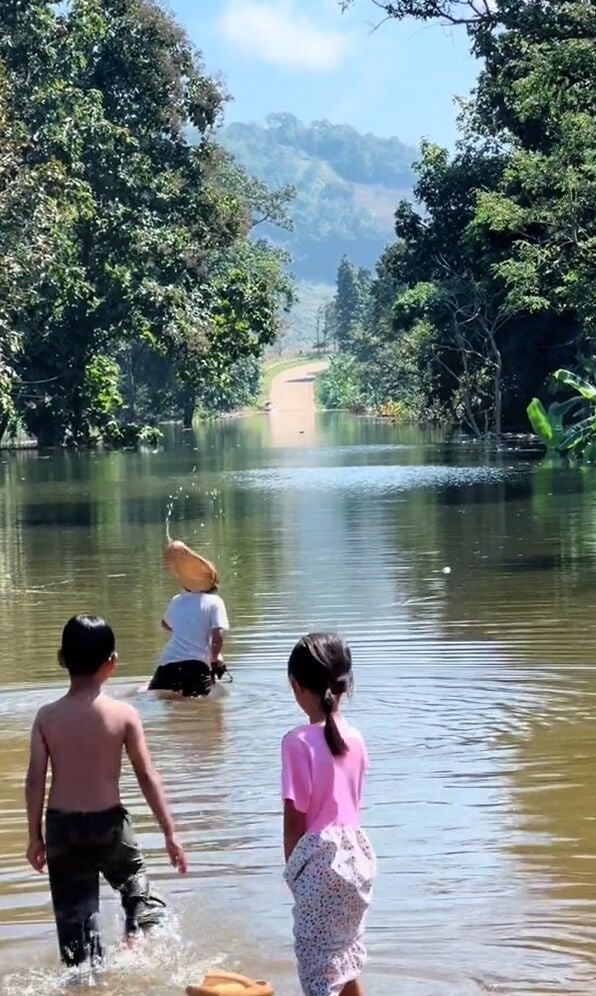Spring surprise: Flooding ‘washes out’ Chiang Mai roads (video)

Water springs in Mueang Na, Chiang Dao, Chiang Mai have been causing unusual flooding, leading to road closures. Normally dry for six months, these springs have continuously flowed, affecting multiple areas simultaneously and disrupting local transport.
A TikTok user, under the account @j_khamsan, shared videos highlighting the strange phenomenon of multiple water springs in Mueang Na, Chiang Dao district, Chiang Mai province. The relentless water flow has inundated roads and agricultural lands, making them impassable for vehicles.
The video footage reveals water bubbling up, flooding roads, fields, and local farms. The water level is deep yet clear, submerging some trees up to their tops. The water shows no signs of stopping, creating a significant disruption in the area.
The teacher narrating the video explains that for two months, the main route through Mueang Na, Chiang Dao, has been cut off by water over a stretch nearly 1 kilometre long. Vehicles are forced to detour through Nong Khiew village to reach Rin Luang village.
The water springs originate from underground and spread across several areas, with water levels deep enough to submerge tree trunks and steadily rising.

Water has reached the road’s edge with no indication of receding. Some trees are submerged to their tops, with springs occurring at multiple points.
The springs emerge on one side and flow to another, leading observers to a large hole where clear but potentially dangerous water continuously surfaces and collects in various locations, uncertain of what lies beneath.
Additionally, responses to comments indicate that it usually takes around six months for the water to dry. Typically, such events occur every three to four years but this year the springs have been ceaseless, with water levels persistently rising.
The area lacks dams or reservoirs, and there are no natural drainage routes like streams or creeks, causing water to accumulate and deepen significantly, with multiple springs appearing simultaneously, reported Sanook.
@j_khamsan เหตุการณ์แปลกประลาดน้ำผุดหลายจุดที่ตำบลเมืองนะ อ.เชียงดาว จ.เชียงใหม่ น้ำผุดเมืองนะ #ครูจร #เทรนด์วันนี้ #tiktokviral #บ้านอรุโณทัย
What Other Media Are Saying
- PBS reports severe flooding in Chiang Mai, Thailand, prompting evacuations and animal rescues as authorities manage rising water levels, highlighting the increasing impact of seasonal rainfall on infrastructure and safety. (read more)
- Bangkok Post reports severe flooding in Chiang Mai as the Ping River overflows, prompting evacuations and emergency measures. The situation mirrors last year’s devastation, highlighting ongoing vulnerability amid climate challenges. (read more)
Frequently Asked Questions
Here are some common questions asked about this news.
Why might these water springs in Chiang Dao be continuously flowing this year?
Unusual geological activity or climate variations could be altering subterranean water paths, and increasing flow rates.
How could the persistent flooding affect the local ecosystem and agriculture in Mueang Na?
Prolonged flooding can disrupt soil composition, damage crops, and alter local biodiversity, impacting farmers’ livelihoods.
What if similar unpredictable water spring events become more frequent in other regions?
Increased occurrences could necessitate new infrastructure planning, emergency responses, and environmental adaptations across affected areas.
How might local communities adapt to frequent and unpredictable flooding in the future?
Communities might develop alternative transportation routes, invest in water management systems, or adjust agricultural practices.
What potential geological changes could lead to the emergence of new water springs?
Shifts in tectonic plates, land subsidence, or changes in underground water reservoirs could create new spring sources.
Latest Thailand News
Follow The Thaiger on Google News:


























